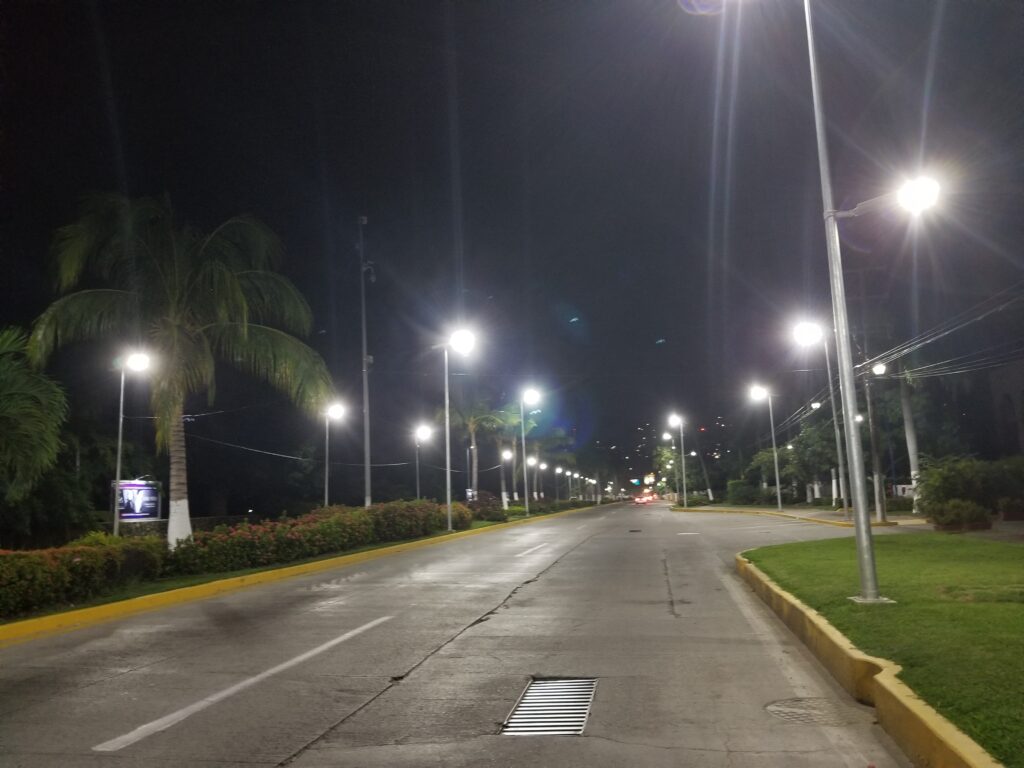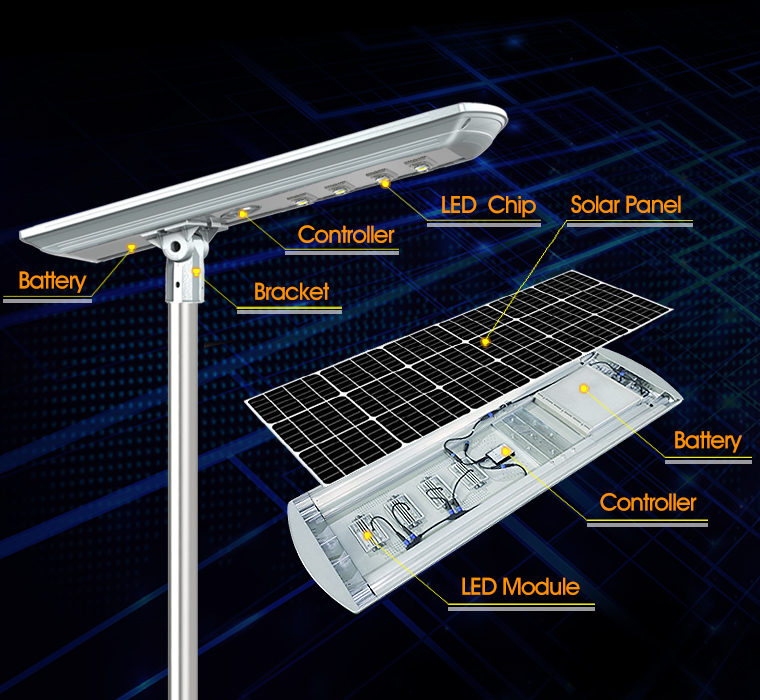Implementing Solar Street Lighting Projects
Lighting Tomorrow with Sun-Powered Brilliance
Locations:
- Boulevard de Acapulco Diamante, Mexico
- Pie de la Cuesta, Guerrero, Mexico
- Avenida ecenica Acapulco, Guerrero, Mexico
- Veracruz, México
Date: July 2017 – July 2023
Product: Installation of Solar-Powered Lights

Introduction
Solar street lighting projects have gained significant succes in recent years as a sustainable and cost-effective solution for public lighting. By harnessing the power of the sun, these projects aim to illuminate streets while minimizing environmental impact. This blog explores the benefits, challenges, and successful implementation of solar street lighting projects.

Understanding Solar Street Lighting
Solar street lighting utilizes photovoltaic panels to convert sunlight into electrical energy that powers LED lights installed on streets and highways. This renewable energy source offers numerous advantages over traditional grid-powered systems.
Advantages of Solar Street Lighting Projects
Energy Efficiency: Solar-powered lights are highly efficient, reducing energy consumption and carbon emissions.
Cost Savings: Once installed, solar street lights require minimal maintenance and operate independently from the main power grid, resulting in long-term cost savings.
Environmentally Friendly: By utilizing clean energy sources, solar street lighting helps combat climate change by decreasing reliance on fossil fuels.
Safety Enhancement: Well-illuminated streets contribute to enhanced safety by improving visibility for pedestrians and drivers alike.

Overcoming Challenges
While solar street lighting presents various benefits, certain challenges must be addressed during project implementation:
Initial Costs: While prices have significantly decreased over time, upfront investment costs can still be higher compared to conventional systems.
Location Considerations: To maximize efficiency, suitable locations with adequate sunlight availability should be selected for optimal performance.
Maintenance Requirements: Regular maintenance is essential to ensure uninterrupted operation of solar panels and LED lights.

Successful Case Studies
Los Angeles’ “Smart” Streetlight Program: With over 200 city-wide installations that include smart features such as motion sensors and adaptive dimming capabilities, Los Angeles has successfully reduced electricity use while enhancing public safety.
Nairobi’s Off-Grid Solar Lighting Project: The deployment of solar-powered street lights in Nairobi’s slums has significantly improved community safety, reducing crime rates and providing a sense of security.

Related Services:
Conclusion
Solar street lighting projects offer a sustainable and efficient alternative to conventional public lighting systems. Despite initial challenges, the numerous benefits, cost savings, and success stories from various cities worldwide highlight the potential for widespread implementation. As communities strive towards a greener future, solar street lighting emerges as an essential component in illuminating our path to sustainability.